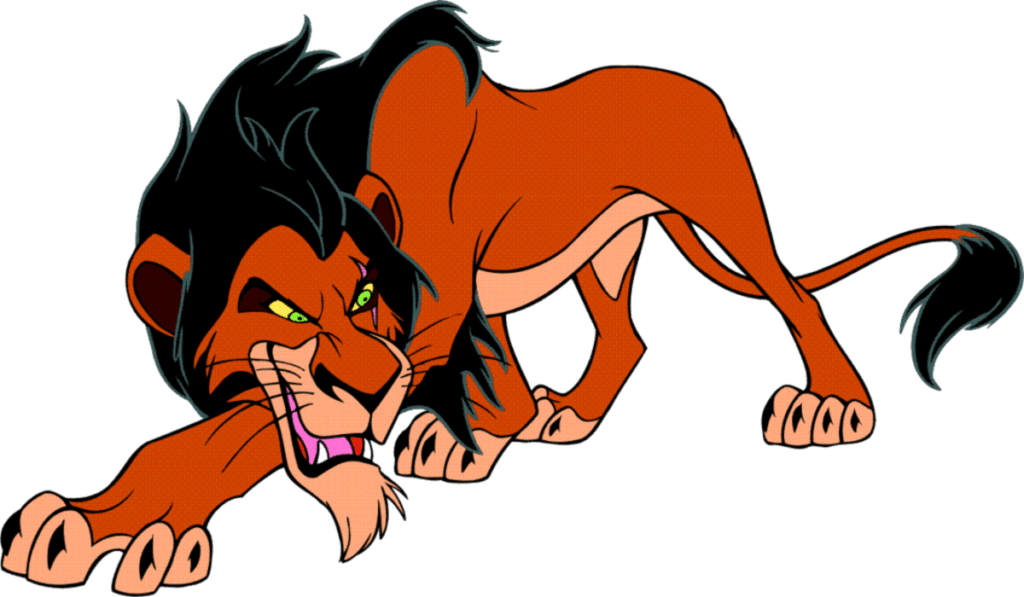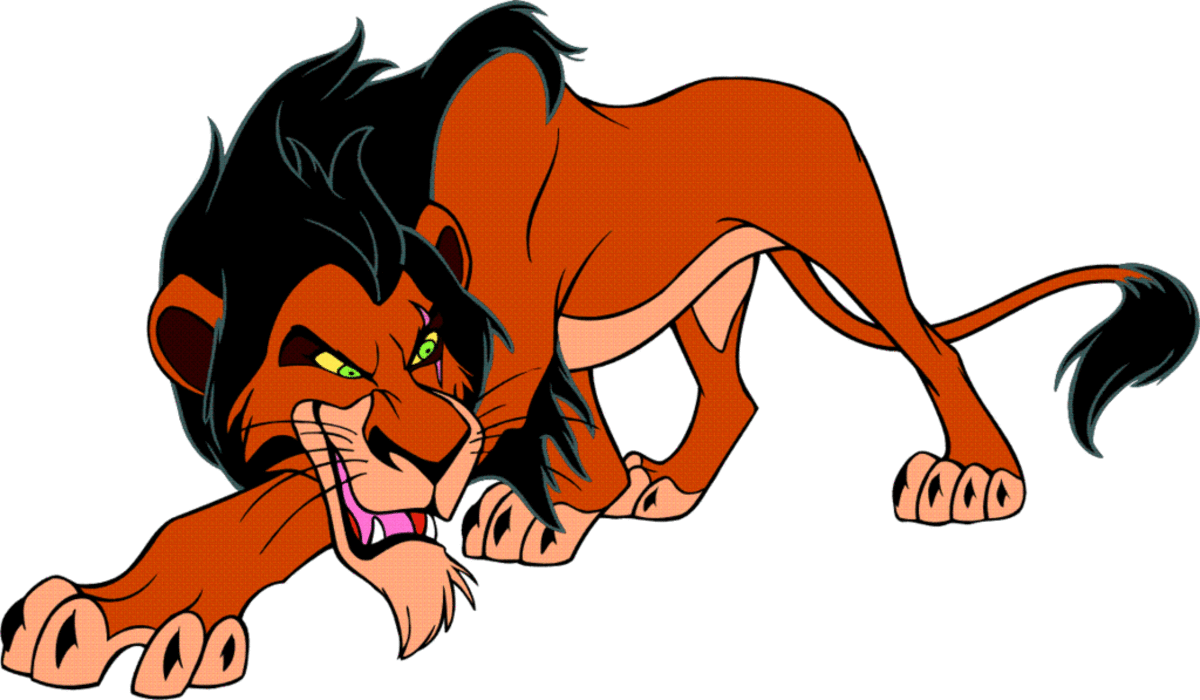
Scar: Deconstructing the Villainy of The Lion King’s Antagonist
Disney’s The Lion King, a timeless classic, resonates with audiences of all ages. While the film is celebrated for its heartwarming story, stunning animation, and unforgettable songs, it’s also recognized for its compelling villain: Scar. Understanding the depth and complexity of Scar’s character is crucial to appreciating the narrative power of The Lion King. This article delves into the layers of Scar’s villainy, examining his motivations, actions, and the impact he has on the Pride Lands and its inhabitants. Scar is arguably one of the most well known Disney villains.
The Genesis of Jealousy and Resentment
Scar’s villainous path begins with a potent cocktail of jealousy and resentment. Mufasa’s younger brother, Scar, whose original name was Taka, was denied the throne due to the established order of succession. This perceived injustice fuels his burning desire for power. Scar’s manipulative nature is evident in his interactions with other characters, exploiting their weaknesses and insecurities to further his own agenda. The Lion King is considered one of the greatest animated films of all time.
The seeds of Scar’s discontent are sown long before the events depicted in the film. He believes he is entitled to the throne, and Mufasa’s position as king is a constant reminder of his perceived inadequacy. This sense of entitlement, combined with a deep-seated inferiority complex, forms the foundation of his villainous character. Scar’s intelligence is often overlooked, but it’s a crucial element in his ability to orchestrate his plans and manipulate those around him. He is not merely a brute; he is a cunning strategist who understands the importance of playing the long game.
The Orchestration of Mufasa’s Demise
Scar’s ambition culminates in the meticulously planned murder of Mufasa. He cunningly exploits Simba’s naiveté, luring him into the gorge and orchestrating the wildebeest stampede. Scar then betrays Mufasa, casting him to his death. Following Mufasa’s death, Scar manipulates Simba into believing he is responsible, driving him into exile and effectively seizing the throne. This act of fratricide marks a turning point in the film, plunging the Pride Lands into darkness. The Lion King is a story about the circle of life.
The stampede scene is a masterclass in cinematic tension, and Scar’s role in orchestrating it highlights his ruthlessness and lack of empathy. He is willing to sacrifice anyone, even his own family, to achieve his goals. His betrayal of Mufasa is particularly chilling, as it demonstrates the depth of his depravity. After Mufasa’s death, Scar wastes no time in consolidating his power, manipulating the other lions and hyenas to maintain his grip on the Pride Lands. The Lion King villain is a master of manipulation.
The Reign of Tyranny and Despair
Scar’s reign is characterized by tyranny and mismanagement. He forms an alliance with the hyenas, who ravage the Pride Lands, depleting its resources and disrupting the delicate balance of nature. Under Scar’s rule, the Pride Lands become a barren wasteland, reflecting the moral decay at the heart of his leadership. The once vibrant ecosystem is reduced to a desolate landscape, mirroring the emptiness and despair that Scar embodies. The Lion King is a coming-of-age story.
The hyenas, motivated by their own self-interest, are more than willing to carry out Scar’s bidding. They are depicted as opportunistic scavengers, preying on the weak and vulnerable. Scar’s alliance with the hyenas is a testament to his willingness to align himself with anyone who can help him maintain his power, regardless of the consequences. The deterioration of the Pride Lands under Scar’s rule is a visual representation of the destructive nature of unchecked ambition and greed. Scar is a complex and multifaceted villain.
The Psychology of a Villain: Beyond Simple Evil
Scar’s villainy extends beyond mere ambition; it’s rooted in deep-seated psychological issues. His physical appearance, marked by his dark mane and scar, sets him apart from the other lions, potentially contributing to his feelings of isolation and resentment. His intellectual superiority, coupled with his lack of physical prowess, may have further fueled his insecurities. Understanding these psychological underpinnings allows for a more nuanced appreciation of Scar’s character. The Lion King is a timeless classic.
Scar’s intelligence is often used for nefarious purposes, but it also highlights his potential for good. Had he been able to channel his intellect and ambition in a more constructive way, he might have been a valuable asset to the Pride Lands. However, his inability to overcome his own insecurities and resentments ultimately leads him down a path of destruction. Scar’s character serves as a cautionary tale about the dangers of unchecked ambition and the importance of self-acceptance. The Lion King is a beloved film.
Scar’s Downfall and the Restoration of Order
Simba’s return marks the beginning of Scar’s downfall. Confronted with his past, Simba challenges Scar’s authority, leading to a climactic battle for the throne. During the confrontation, Scar inadvertently reveals his role in Mufasa’s death, galvanizing the pride against him. Ultimately, Scar is defeated and left to the mercy of the hyenas, who turn on him, ending his reign of terror. The Pride Lands are restored, and the natural order is re-established. The Lion King is a story about redemption.
Scar’s final moments are a reflection of his own betrayal and manipulation. He is abandoned by those he sought to control, highlighting the ultimate futility of his power-hungry ambitions. The hyenas, who were once his loyal followers, turn on him when they realize he has used them for his own gain. This betrayal underscores the importance of loyalty and trust, qualities that Scar consistently lacked. The restoration of the Pride Lands under Simba’s leadership symbolizes the triumph of good over evil and the importance of maintaining a balance between power and responsibility. Scar is a formidable foe.
Scar’s Enduring Legacy as a Villain
Scar remains one of Disney’s most iconic and memorable villains. His complex motivations, cunning intellect, and ruthless actions have solidified his place in cinematic history. He serves as a cautionary tale about the dangers of ambition, jealousy, and the abuse of power. Scar’s impact on the narrative of The Lion King is undeniable, shaping the story’s themes of responsibility, justice, and the cyclical nature of life. The Lion King villain is a complex character.
Scar’s enduring legacy is a testament to the power of well-developed antagonists. He is not simply a one-dimensional villain; he is a complex and multifaceted character with his own motivations and insecurities. His actions have far-reaching consequences, impacting the lives of all those around him. Scar’s character continues to resonate with audiences today, reminding us of the importance of resisting temptation and striving for a more just and equitable world. The Lion King villain is a master manipulator.
The Lion King: A Timeless Tale of Good vs. Evil
The Lion King, with its compelling narrative and unforgettable characters, continues to captivate audiences worldwide. Scar, as the embodiment of evil, plays a crucial role in the film’s exploration of themes such as power, responsibility, and the importance of maintaining balance in the natural world. His villainy serves as a catalyst for Simba’s journey of self-discovery and eventual triumph over adversity. The Lion King’s timeless appeal lies in its ability to resonate with audiences on a deep emotional level, exploring universal themes that transcend cultural boundaries. [See also: The Evolution of Disney Villains].
The film’s message of hope and resilience is particularly relevant in today’s world, where we face numerous challenges and uncertainties. Scar’s defeat serves as a reminder that even in the darkest of times, good can ultimately triumph over evil. The Lion King’s enduring popularity is a testament to its power to inspire and uplift audiences of all ages. Scar’s character, while villainous, is an essential part of the film’s overall message, highlighting the importance of fighting for what is right and upholding the values of justice and compassion. He is a truly remarkable villain from The Lion King.

